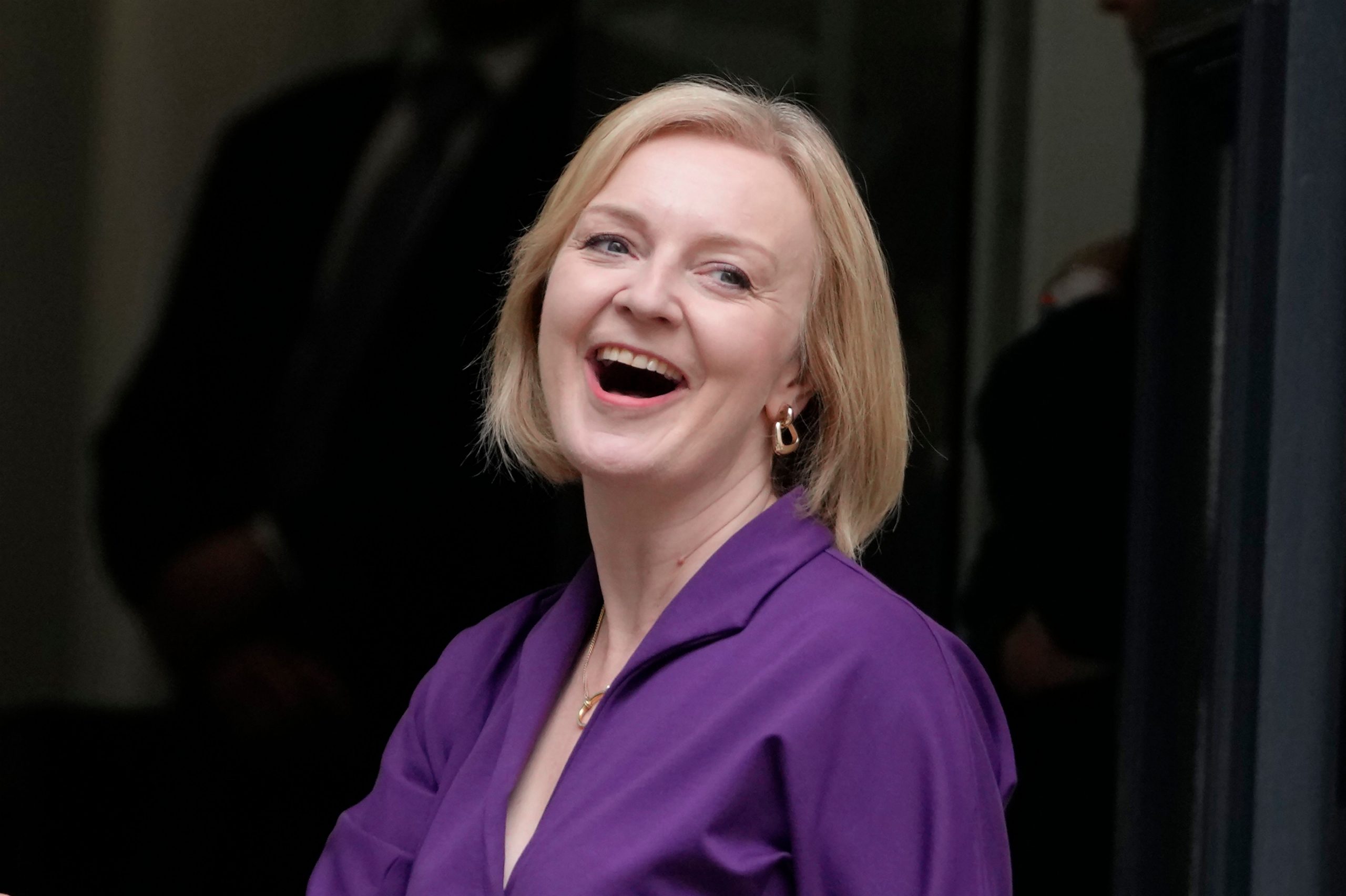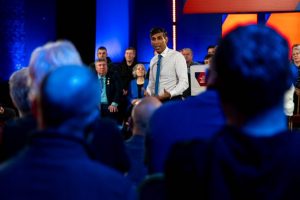Following Boris Johnson’s resignation, Liz Truss assumed the role of the prime minister of the United Kingdom on Tuesday during a meeting with the monarch, Queen Elizabeth II.
In an official portrait, the 47-year-old former foreign secretary can be seen shaking hands with the monarch as she accepts her invitation to form a new government and become the monarch’s 15th prime minister in her 70-year reign.
The queen, 96, was thought too unwell to travel back to London, so the symbolic ceremony was held at the sovereign’s isolated Balmoral estate in the Scottish Highlands.
Also read: Liz Truss becomes the United Kingdom Prime Minister with Queen Elizabeth II in audience
Given that she is in office during a highly tumultuous economic era, the policy focus of a Truss prime ministership will obviously be mostly a work in progress. But throughout the course of a protracted leadership race, the new PM has outlined a number of ideas and goals for the government:
Taxation and cost of living
Truss’s top economic objective is tax reduction, which she claims will jump-start a stagnant economy and assist people with skyrocketing energy costs, to actively fight the cost of living crisis.
She has pledged to remove a planned increase in corporation tax and roll back a recent hike in national insurance, which together will cost approximately £30 billion annually. To help with household budgets, Truss’ team has also suggested reducing income tax or decreasing VAT by 5%.
Truss has claimed that her plans will be funded by fiscal headroom and delay the repayment of loans relating to Covid, but detractors claim she will need to borrow significant amounts at very exorbitant rates, which will have a negative impact on the economy. One choice may be to increase a windfall tax on energy companies, but Truss has stated that she opposes this.
Also read: Watch: UK’s Chief Mouser Larry the Cat spotted outside 10 Downing Sreet as Liz Truss becomes PM
A tax cut-based response to the problem in energy prices is likewise met with significant skepticism because it would disproportionately favour wealthy earnings and do little for those who depend on pensions or other benefits.
Truss has not ruled out providing more direct assistance with energy costs, but she has avoided specifying what this assistance may entail and has shown her dislike for “handouts”. It is a stance that will soon be put to the test in light of economic reality.
Climate and green energy
Even though Truss has emphasised her dedication to the UK’s current net zero aim and her team is adamant that she would prioritise renewable energy, several Conservatives on the greener end of the spectrum are growing concerned about her priorities.
Truss would suspend the green levies on energy bills, which are used to fund renewable energy projects, as one of his few direct policies on the cost of living. Her opposition to onshore wind energy led her to call solar arrays on fields “one of the most depressing sights” in contemporary Britain.
Also read: Liz Truss as PM: 5 politicians who may be in the new UK cabinet
She has endorsed a significant increase in nuclear power, though, and favours fracking for shale gas. She also apparently supports a drive for more drilling in the North Sea. She hasn’t discussed initiatives to cut energy use, such as funding for house insulation.
Health and social care
Given the health service crisis and the common anticipation that conditions will worsen during the winter, Truss’ proposals for the NHS and care have gotten remarkably little examination.
Truss has pledged to roll back the national insurance increase, which was intended to raise money to pay for better social care in the long run and, initially, to help clear the backlog of NHS procedures caused by Covid. Despite this, she has stated that she is still committed to the current plans to support the NHS.
Ambulance delays are frequently caused by the overcrowding of hospital beds with patients who cannot receive social care. Truss urgently needs a well-thought-out strategy.
Also read: Liz Truss plans $46 billion energy package for businesses: Report
Levelling up
Another subject on which Truss spoke sparingly during the race for the leadership but which may become more important if she deals with the public and her own MPs as prime minister.
Although Truss has declared that she is still committed to this goal, it is uncertain whether she will support it with major spending. Leveling up was Johnson’s self-described defining objective. According to Truss, she will advance “in a Conservative way,” emphasising tax cuts and deregulation.
Johnson was well-liked by many “red wall” Tories because they could cite particular, Whitehall-funded infrastructure initiatives, such as a new local bypass or a redesigned high street. This could cause unease if Truss were to take it away.
Immigration and home affairs
Truss pledged throughout the campaign to continue deporting immigrants and asylum seekers to Rwanda while also looking for other nations that would accept them. Even if some did leave, it is unclear whether this is realistic or if it would have any effect on the number of persons using unauthorised means to cross the English Channel.
Also read: Poll reveals low confidence in Liz Truss-led government to tackle cost of living crisis
Truss is likely to tie any refusal to deport individuals to the European Court of Human Rights’ continuing authority. She is expected to move forward with proposals for a so-called UK bill of rights, with fewer protections for asylum seekers and others, despite the fact that doing so would be difficult and complicated.
Culture wars
Truss keeps the Tory faithful happy at hustings events with fleeting jabs at “woke” culture and trans rights. Truss is more of a savvy amateur culture warrior than a die-hard devotee. The situation might get even worse if she chooses Suella Braverman for home secretary and Kemi Badenoch for education, as is rumoured.
Politics and debate are often more the focus of culture war concerns than actual policies, but this could change in education, especially with regard to trans rights and free speech.
Foreign policy and Brexit
Given that Truss oversaw this issue under Johnson, expect continued ardent support for Ukraine as well as the occasional blunder, like her recent unwillingness to categorically state whether French President Emmanuel Macron, a close ally, and neighbour, is a “friend or foe.”
Truss’s camp has intimated that she would invoke article 16, the emergency process mechanism in the post-Brexit agreement with the EU, within days of taking up residence in No. 10. Truss has made much of her toughness about the Northern Ireland protocol. Truss might decide a potential trade war is not what she needs since there are so many other challenges to deal with and the leadership competition is done.







